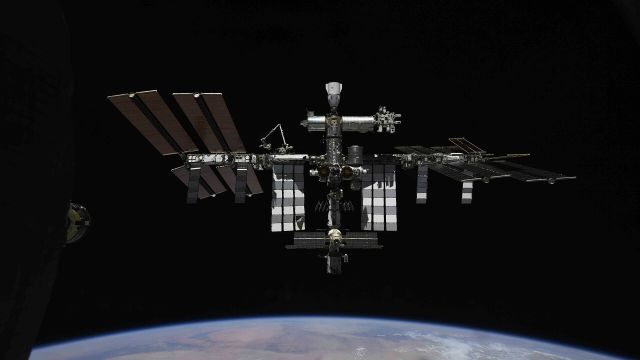Washington. May 3. INTERFAX - Bill Nelson, head of the US National Aeronautics and Space Administration (NASA), believes that Russia will continue cooperation on the International Space Station (ISS) project until 2030.
"We see all the reasons why Russia will continue to cooperate in the near future," Nelson said during his speech before the US Senate.
"They are not withdrawing (from the agreement - IF). In recent days, news has been coming out under misleading headlines. If you read the articles, they state what does not correspond to the comments of persons from Roscosmos, the Russian space agency," Nelson added.
On April 30, the head of the state corporation Roscosmos Dmitry Rogozin said that the decision to extend cooperation on the ISS project has already been made, the partners under the agreement will be warned about the end of the Russian side's work at the station a year before.
"We have prepared our proposals, as I also said, they have been sent to both the government and the president. The decision has already been made. We are not obliged to talk about it publicly, I can only say one thing: in accordance with our obligations, we will warn our partners in a year about the end of our work on the ISS," Rogozin said in an interview with the Rossiya-24 channel (VGTRK).
On April 12, Sergey Krikalev, Executive Director of the State Corporation for Manned Programs, announced that Roscosmos continues to assess the technical condition of the Russian segment of the ISS for the possibility of extending its operation.
"Our partners offer to fly beyond 2024. We will continue to evaluate the technical condition of our segment for the time being," he said.
On April 2, he said that the state corporation would soon report to the country's leadership "specific proposals of Roscosmos on the timing of completion of cooperation within the ISS with the space agencies of the United States, Canada, the European Union and Japan."
"I believe that the restoration of normal relations between partners on the International Space Station and other joint projects is possible only with the complete and unconditional lifting of illegal sanctions," the head of Roscosmos said.
Earlier, the state corporation reported receiving letters from NASA, ESA and the Canadian Space Agency with a response to the proposal to lift sanctions from the enterprises of the Russian space industry. As noted in the letters, the United States and Canada consider it their priority to continue the safe operation of the ISS. The head of NASA, Bill Nelson, noted that the existing US sanctions do not affect the operation of the station.
Roscosmos linked the response to this proposal with the fate of the agreement on the resumption of cross-flights to the ISS and the extension of the life of the station. After the start of the Russian military operation in Ukraine, many countries imposed large-scale sanctions against Moscow. In 2021, several Russian space enterprises, including the Samara RCC Progress and the Central Research Institute of Mechanical Engineering (TsNIIMash), were included in the US sanctions lists.
The head of Roscosmos called the sanctions against space enterprises - RCC Progress and TsNIIMash - illegal.
On March 1, the press service of Roscosmos told Interfax that the extension of the agreement on the operation of the ISS under sanctions causes skepticism.
On December 31, 2021, the head of NASA, Bill Nelson, announced that the administration of US President Joe Biden approved the extension of the agreement on the use of the ISS until 2030. According to him, the extension of the agreement until 2030 as a result will give humanity another productive decade in the scientific field and will provide new opportunities in low-Earth orbit, as well as open up new commercial areas.

